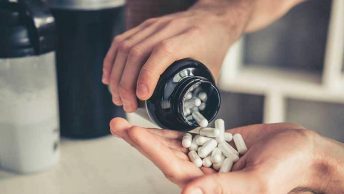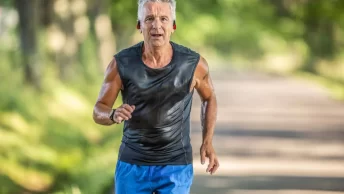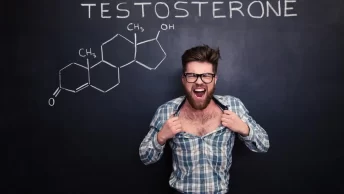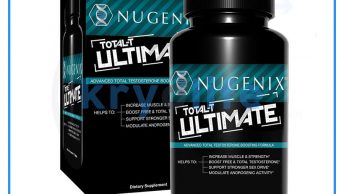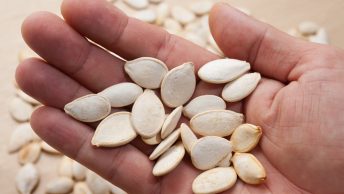Quick summary
- Testosterone is a male sex hormone that is linked to libido and sexual aggression.
- Higher levels of testosterone can improve sex drive and increase horniness.
- You can increase testosterone levels through dietary supplements or by incorporating testosterone-boosting foods into your diet. It is important to choose a reputable and clinically proven product.
Men getting horny is a natural occurrence, essential to sustaining human life on the planet.
Testosterone is the primary hormone responsible for this.
But does taking a testosterone booster make you hornier than usual?
Can it enhance your performance in bed and prolong pleasure?
Are there other benefits to having higher testosterone levels?
In this article, we’ll explore the science behind testosterone and its relationship to libido, along with ways to naturally boost your testosterone levels.
Do High Testosterone Increase Libido and Sexual Desire?
Testosterone is the male sex hormone directly linked to libido.
According to Dr. Michael S. Irwig, M.D., an endocrinologist and researcher at George Washington University,
“Testosterone plays a significant role in the sexual function of both men and women, including libido, sexual desire, and erectile function”.
Higher testosterone levels can indeed make a person hornier, but it’s essential to understand the science behind it.
The Role of Testosterone in Libido: By the Numbers
A study conducted by Travison et al. (2006) found that men with higher testosterone levels reported greater sexual desire compared to those with lower levels.
The study included 1,386 men aged 40-70 and showed a clear correlation between higher testosterone levels and increased libido.
“Our data indicate that among men aged 40-70 years, higher free testosterone levels are independently associated with higher sexual desire” – Travison et al. (2006).
Testosterone works on the subcortical regions of the brain to help maintain arousal and sexual aggression.
Moreover, testosterone can synchronize the activity of “happy hormones” such as oxytocin, dopamine, and serotonin, contributing to overall mental well-being.
A testosterone increase can improve your sex drive, and if present in excess, it can make you hornier.
Men with hypogonadism or low testosterone often experience low libido and infertility.
In these cases, testosterone supplements are prescribed to improve sexual performance.
Lifestyle Factors Affecting Testosterone Levels
Various lifestyle factors can impact testosterone levels.
To maintain healthy testosterone levels, consider incorporating the following habits:
- Exercise regularly: Engaging in regular physical activity, especially resistance training and high-intensity interval training, can help boost testosterone levels.
- Get enough sleep: Aim for 7-8 hours of quality sleep each night to ensure proper hormonal balance, including testosterone production.
- Manage stress: Chronic stress can negatively affect testosterone levels. Practice stress management techniques like meditation, deep breathing, and engaging in hobbies to keep stress under control.
- Eat a balanced diet: Consuming a diet rich in protein, healthy fats, and essential nutrients can help maintain optimal testosterone levels.
Natural Testosterone Boosters and Foods
In addition to lifestyle adjustments, you can also try natural testosterone boosters and incorporate testosterone-boosting foods into your diet.
Some popular testosterone-boosting supplements include TestRX, Testogen, and Prime Male.
Remember to choose a reputable and clinically proven product for the best results.
Foods that can help increase testosterone levels include:
- Lean meats, poultry, and fish
- Eggs
- Beans and legumes
- Leafy green vegetables
- Nuts and seeds
- Whole grains
- Fruits, such as pomegranate and grapes
Conclusion
In summary, taking a testosterone booster can increase libido and sexual desire, making you hornier and improving your overall sexual performance.
Incorporating healthy lifestyle habits, consuming testosterone-boosting foods, and using natural supplements can all contribute to maintaining optimal testosterone levels.
However, it’s essential to consult with a healthcare professional before starting any supplementation regimen to ensure it’s appropriate for your individual needs.
References
- Irwig, M. S. (2017). Testosterone therapy for men with low testosterone levels: A clinical review. The Journal of Clinical Endocrinology & Metabolism, 102(7), 2269-2277. https://doi.org/10.4111%2Ficu.2016.57.6.384
- Davis, S. R., Wahlin-Jacobsen, S. (2015). Testosterone in women–the clinical significance. The Lancet Diabetes & Endocrinology, 3(12), 980-992. https://doi.org/10.1016/S2213-8587(15)00284-3
- Sisk, C. L., Zehr, J. L. (2005). Pubertal hormones organize the adolescent brain and behavior. Frontiers in Neuroendocrinology, 26(3-4), 163-174. https://doi.org/10.1016/j.yfrne.2005.10.003
- Travison, T. G., Morley, J. E., Araujo, A. B., O’Donnell, A. B., McKinlay, J. B. (2006). The relationship between libido and testosterone levels in aging men. The Journal of Clinical Endocrinology & Metabolism, 91(7), 2509-2513. https://doi.org/10.1210/jc.2005-2508
- Bhasin, S., Cunningham, G. R., Hayes, F. J., Matsumoto, A. M., Snyder, P. J., Swerdloff, R. S., & Montori, V. M. (2010). Testosterone therapy in men with androgen deficiency syndromes: an Endocrine Society clinical practice guideline. The Journal of Clinical Endocrinology & Metabolism, 95(6), 2536-2559. https://doi.org/10.1210/jc.2009-2354
- Hayes, L. D., Herbert, P., Sculthorpe, N. F., & Grace, F. M. (2017). Exercise training improves free testosterone in lifelong sedentary aging men. Endocrine Connections, 6(5), 306-310. https://doi.org/10.1530/EC-17-0082
- Leproult, R., Van Cauter, E. (2011). Effect of 1 week of sleep restriction on testosterone levels in young healthy men. JAMA, 305(21), 2173-2174. https://doi.org/10.1001/jama.2011.710
- Cumming, D. C., Quigley, M. E., Yen, S. S. (1983). Acute suppression of circulating testosterone levels by cortisol in men. The Journal of Clinical Endocrinology & Metabolism, 57(3), 671-673. https://doi.org/10.1210/jcem-57-3-671
- Hämäläinen, E., Adlercreutz, H., Puska, P., & Pietinen, P. (1984). Diet and serum sex hormones in healthy men. Journal of Steroid Biochemistry, 20(1), 459-464. https://doi.org/10.1016/0022-4731(84)90254-1
- Topo, E., Soricelli, A., D’Aniello, A., Ronsini, S., & D’Aniello, G. (2009). The role and molecular mechanism of D-aspartic acid in the release and synthesis of LH and testosterone in humans and rats. Reproductive Biology and Endocrinology, 7(1), 120.


